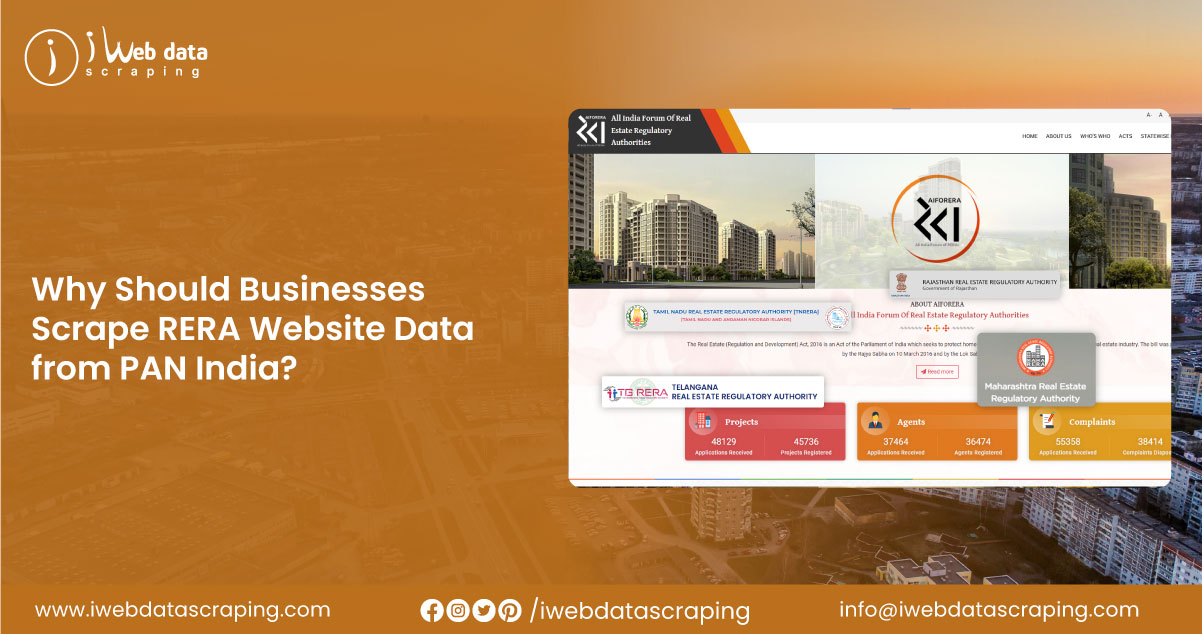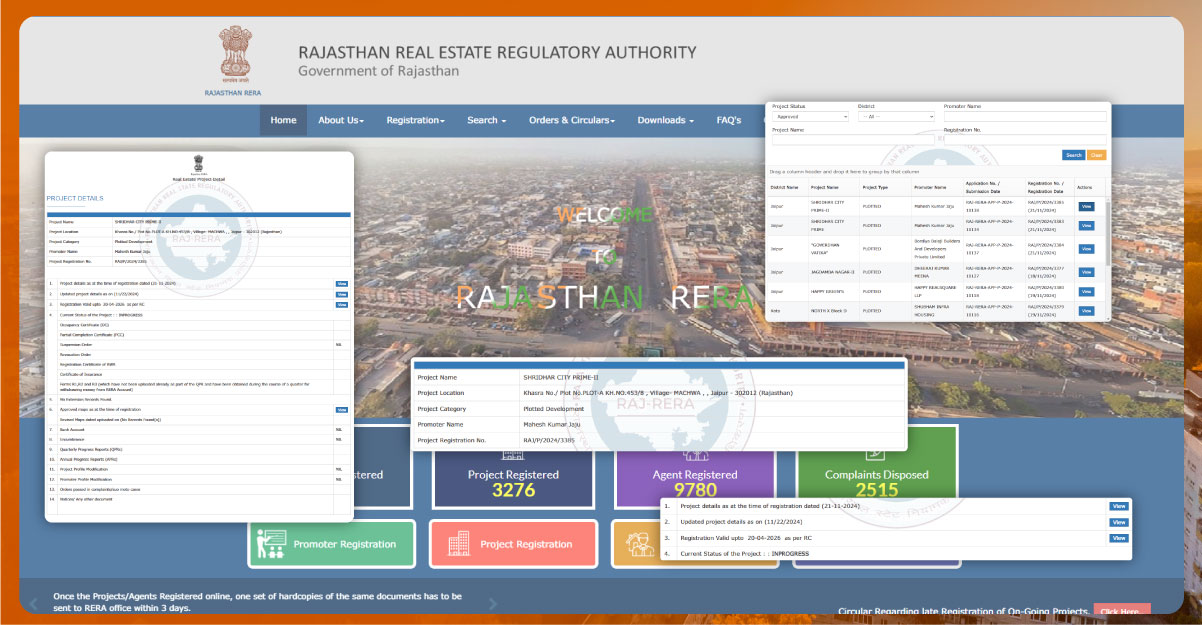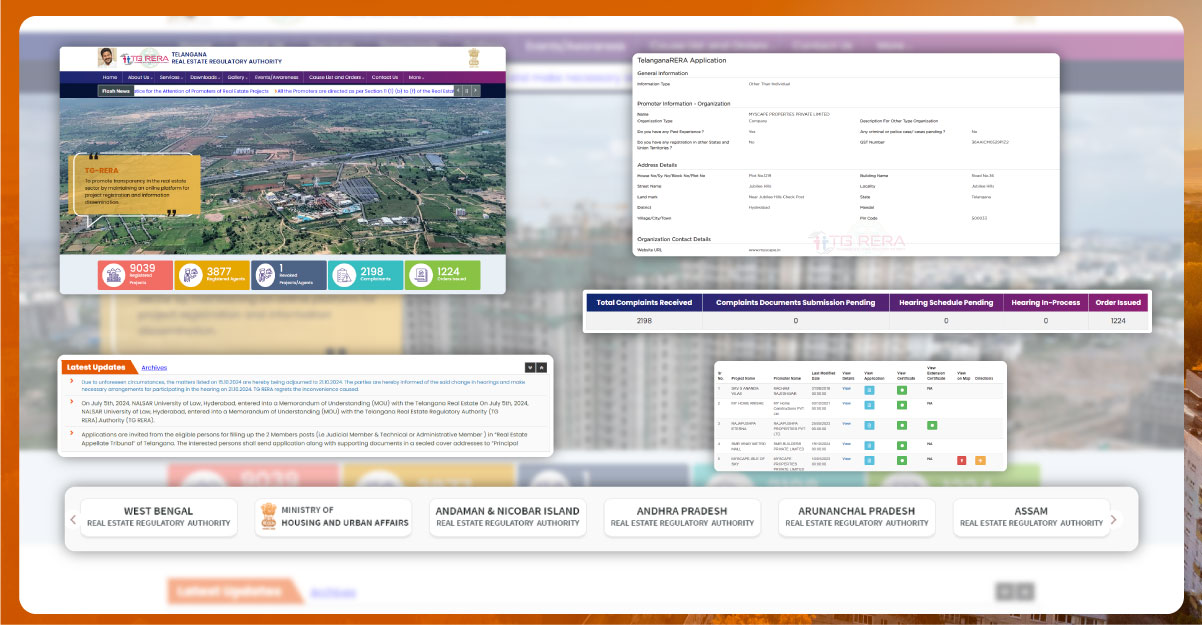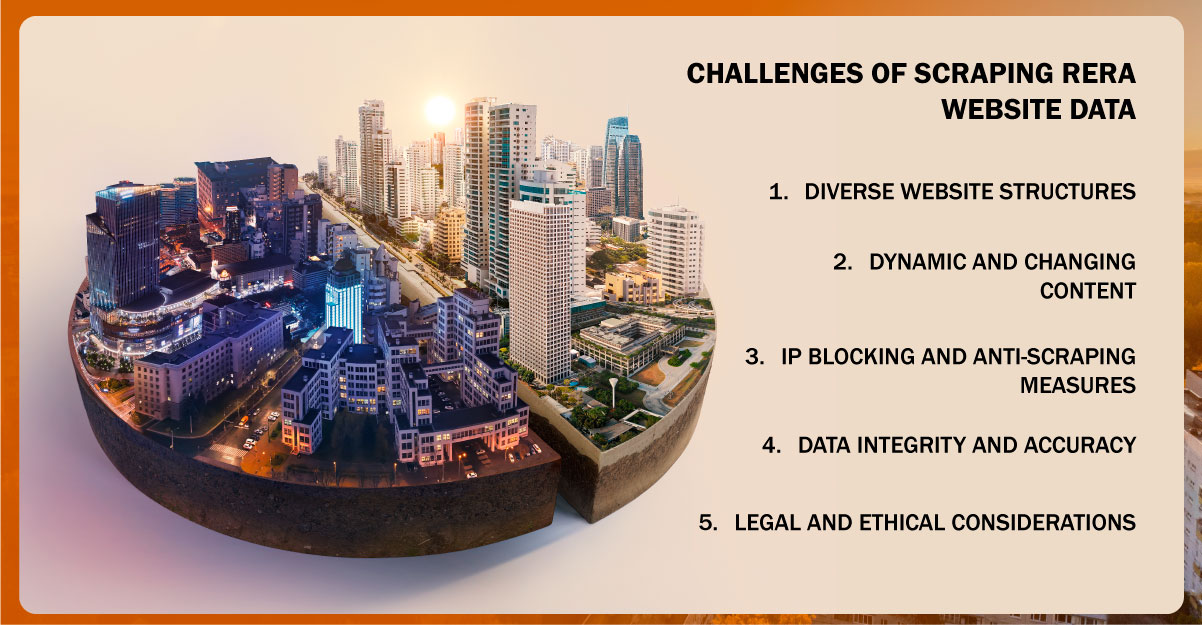
Web scraping RERA website data from PAN India has become crucial for gathering insights into the Indian real estate market. With the rapidly evolving landscape of real estate regulations and development projects, businesses, researchers, and developers require up-to-date data to make informed decisions. This article explores the importance, applications, challenges, and opportunities to scrape RERA website data from PAN India and the legal and ethical considerations involved. Additionally, we'll look at how to extract real estate RERA website data from PAN India for a comprehensive view of the market.

RERA is an initiative by the Indian government to bring transparency, accountability, and efficiency to the real estate sector. It provides a centralized platform for real estate developers, agents, and consumers to access essential information regarding projects, developers, and regulatory approvals. Each state in India has its own RERA website, but the data available on these platforms often varies in structure, accessibility, and usability.
RERA Data Extraction Service in India can be incredibly valuable for various reasons. For developers, it provides insights into competitors, ongoing projects, and market trends. For investors and real estate professionals, scraping RERA data helps track project status, developer credibility, and the overall market condition across different regions. Moreover, it can be beneficial for consumers who want to verify a project's or developer's authenticity before making investment decisions.
The ability to extract comprehensive and accurate data from RERA websites can also streamline real estate agencies' operations. They can use this data to create informative listings, understand market dynamics, and identify profitable investment opportunities. By aggregating RERA Property Data scraping services from PAN India, businesses can gain a holistic view of the real estate market at a national level.

RERA data scraping offers numerous applications across the real estate sector. It helps businesses analyze market trends, monitor project progress, ensure regulatory compliance, generate leads for agents, and conduct due diligence for investors, thereby enabling data-driven decisions and strategic planning.

Scraping RERA website data presents several challenges due to the variability in website structures, inconsistent data formats, and frequent updates. Navigating legal and regulatory complexities, handling large data volumes, and ensuring data accuracy are key obstacles businesses must overcome in this process.
1. Diverse Website Structures: One of the biggest challenges in scraping RERA data is the variation in website structures. Each state has its own RERA website, and while some follow a similar layout, many have different formats, data types, and methods of displaying information. Developers need to create customizable scrapers that can handle this diversity, making it more complex to extract data at scale.
2. Dynamic and Changing Content: RERA websites are frequently updated with new projects, regulatory changes, and developer information. Since these updates happen in real time, maintaining an up-to-date database from RERA sites requires continuous monitoring. Scraping tools must be equipped with features to handle dynamic content, such as JavaScript-rendered pages, to ensure no critical updates are missed.
3. IP Blocking and Anti-Scraping Measures: Many RERA websites have implemented anti- scraping measures such as IP blocking, CAPTCHA challenges, and rate-limiting to prevent excessive scraping. This can make it difficult to extract data consistently, especially when scraping large volumes of information from multiple sources. Scrapers must be equipped with techniques like proxy rotation and random intervals between requests to mitigate the risk of being blocked.
4. Data Integrity and Accuracy: Since RERA websites often rely on user-generated content and various sources, the accuracy and consistency of the data may vary. Scraped data must undergo thorough validation to ensure the information extracted is reliable and up-to-date. Incorrect or outdated data can mislead stakeholders, especially investors, and developers, leading to poor decision-making.
5. Legal and Ethical Considerations: While scraping RERA data can provide valuable insights, ensuring compliance with legal and ethical guidelines is essential. RERA websites may have terms of service prohibiting scraping, and failing to adhere to these regulations can lead to legal consequences. Additionally, ethical concerns such as respecting data privacy and not overburdening websites with excessive requests must be considered.

Despite the challenges, scraping RERA data presents significant opportunities. As more consumers, businesses, and investors turn to digital solutions for real estate decisions, the demand for real-time, accurate data from RERA websites will continue to rise. By leveraging scraping technologies, businesses can automate the process of gathering and analyzing vast amounts of real estate data, enabling faster decision-making and better market insights.
The increasing use of Artificial Intelligence (AI) and Machine Learning (ML) in data analysis will further enhance the value of scraped RERA data. By applying AI/ML algorithms to the collected data, businesses can predict market trends, identify high-potential areas for investment, and optimize project planning. Moreover, integrating scraped RERA data with Geographic Information Systems (GIS) could open new avenues for spatial analysis and location-based decision-making.
Blockchain technology also has the potential to enhance the security and transparency of RERA data. By integrating blockchain with scraped data, developers and real estate agencies can ensure that the data remains tamper-proof and accessible to all stakeholders. This can further increase consumer trust and streamline the property transaction process.
Despite the challenges, scraping RERA data presents significant opportunities. As more consumers, businesses, and investors turn to digital solutions for real estate decisions, the demand for real-time, accurate data from RERA websites will continue to rise. By leveraging scraping technologies, businesses can automate the process of gathering and analyzing vast amounts of real estate data, enabling faster decision-making and better market insights, allowing them to Extract Real Estate Data more efficiently.
The increasing use of Artificial Intelligence (AI) and Machine Learning (ML) in data analysis will further enhance the value of scraped RERA data. By applying AI/ML algorithms to the collected data, businesses can predict market trends, identify high-potential areas for investment, and optimize project planning. Moreover, integrating scraped RERA data with Geographic Information Systems (GIS) could open new avenues for spatial analysis and location-based decision-making powered by a robust Real Estate Data Scraper.
Experience top-notch web scraping service and mobile app scraping solutions with iWeb Data Scraping. Our skilled team excels in extracting various data sets, including retail store locations and beyond. Connect with us today to learn how our customized services can address your unique project needs, delivering the highest efficiency and dependability for all your data requirements.